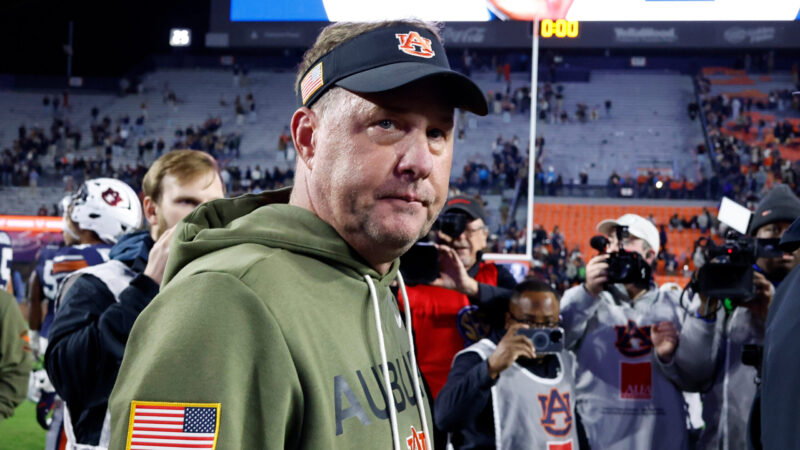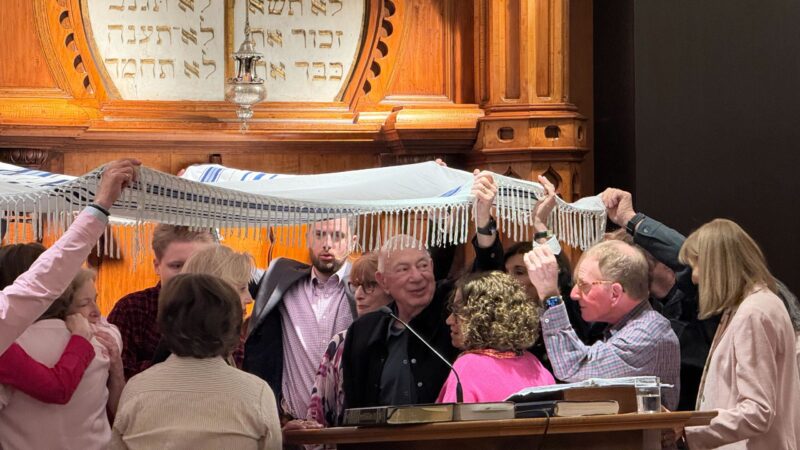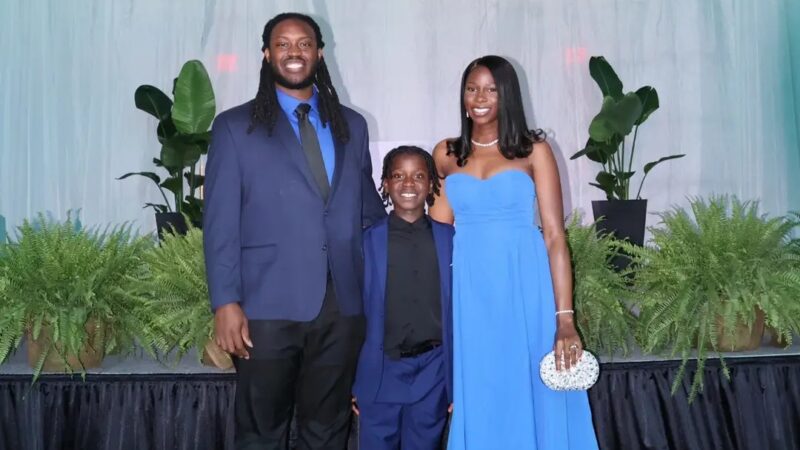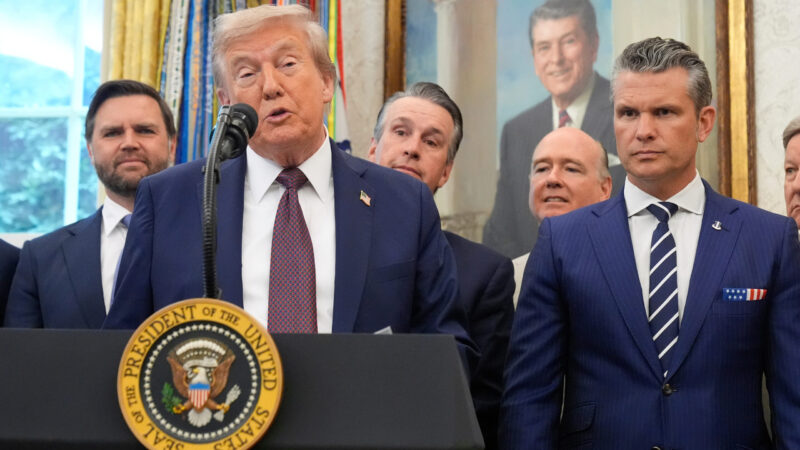Q&A: After federal complaint for COVID vaccine rollout, what’s next for Mississippi?
The NAACP and the Southern Poverty Law Center filed a federal complaint against the Mississippi Department of Health, alleging that the state didn’t adequately dispense COVID-19 relief funds to low-income communities of color, including during its rollout of vaccinations.
The federal complaint comes more than a year after the first COVID-19 vaccine was approved for emergency use.
The Gulf States Newsroom’s health care reporter, Shalina Chatlani, sat down with Mississippi Public Broadcasting’s Desare Frazier to discuss the details of the complaint and what it means for the state going forward.
The following transcription of their conversation has been edited for clarity.
RELATED: Click here to read the federal complaint against the Mississippi Department of Health.
Frazier: Shalina, thanks for joining us.
Chatlani: Hey! Thanks for having me.
Frazier: First, tell us about this complaint.
Chatlani: Well, on March 30, the Southern Poverty Law Center, via the NAACP, filed an administrative complaint saying that the Mississippi Department of Health, essentially, didn’t equitably spend the federal COVID-19 pandemic relief money it was given. NAACP alleges that Mississippi health officials failed to develop a plan that would make vaccine access equitable for communities of color that were already hit hard by the pandemic. The group says they essentially had to fill the void in order to protect these communities.
I spoke to one of the lead attorneys at SPLC on this case, Keisha Stokes-Hough.
Audiotape of Stokes-Hough: We know that the state of Mississippi received billions of dollars in federal COVID aid to make sure that people all across the state were vaccinated. And where did those billions of dollars go? We hope that the government investigators will have the resources to track down exactly what occurred.
Chatlani: And it wasn’t just vaccines… they say it was hard for low-income communities of color to get access to PPE — like masks and hand sanitizer.
Frazier: This is something that you followed as the vaccine was first rolling out. And it was even cited as evidence in the briefing alongside the work of other Mississippi journalists?
Chatlani: That’s right. Back in early 2021, I had been reporting on how lots of states across the South had failed to put vaccines in low-income communities of color. We broke a story with NPR about how in East Baton Rouge, there were almost no vaccine sites, and the majority were in wealthy white areas. Similarly in Jackson, Mississippi, the wealthy white suburbs got the vaccine before the city of Jackson, which is majority Black. We saw something similar in Mobile County, Alabama.
Now, in April, I had heard that it wasn’t just that these sites were missing. It was also that health departments were failing to utilize federal-qualified health centers, which have historically served low-income populations on Medicaid. I went to the Delta Health Center, the oldest FQHC, alongside its twin in Boston, to exist in the nation. And even they — with their track record of success — struggled to get vaccines. I was able to talk to John Fairman, the CEO of Delta Health Center, to hear his reaction to the lawsuit.
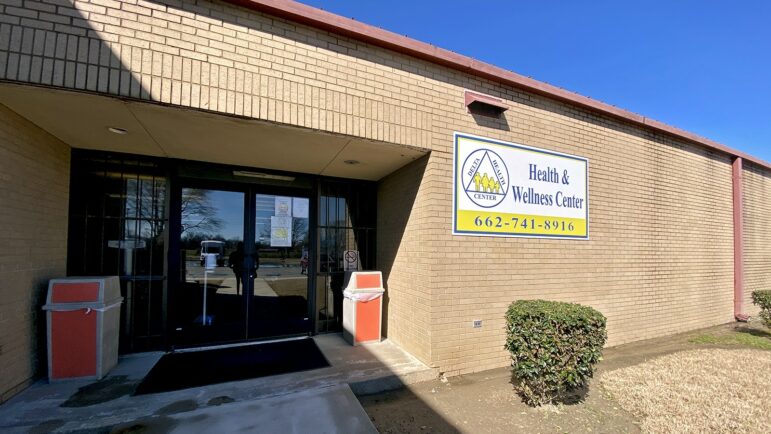
Audiotape of Fairman: We kept trying to get vaccines so that we could offer them. And we were getting hundreds of calls… The vaccines went to areas that were not as disproportionately affected. And so by nature as a fault, as a result of that, you obviously are not having the biggest bang for the buck in the quickest fashion. So, I would call and text Dr. Dobbs every day.
Chatlani: Dr. Dobbs is the state health officer, who’s retiring from that post soon.
Frazier: So what happened after that?
Chatlani: Well, Fairman kept trying and trying to get vaccines. And eventually, they did. And I reported that they were able to get lots of vaccines out to low-income communities of color, kind of showing that the hesitancy we thought we were seeing in the Black community to take up the vaccine — some of that was really an access issue.
Frazier: How is the health department responding?
Chatlani: I emailed the health department and here is what they wrote, “The Mississippi State Department of Health continues its long-standing commitment to health equity, especially in Black, brown and indigenous communities that have been historically deprived of health and prosperity.”
They also tout a relatively high vaccination rate among Black residents in Mississippi.
Frazier: How are health leaders like Delta Health CEO Fairman responding?
Chatlani: Well, Fairman says the work isn’t over. There are still lots of inequities surrounding COVID-19 in the South.
Audiotape of Fairman: I think the issue is to continue to educate. We’ve made it a big thing to invite members of the clergy so that we do educational sessions. We are constantly reaching out to the media, the print media, as well as the television and so on.
Chatlani: He also says the health center is investing in resources like mobile health units that can meet vulnerable people where they are.
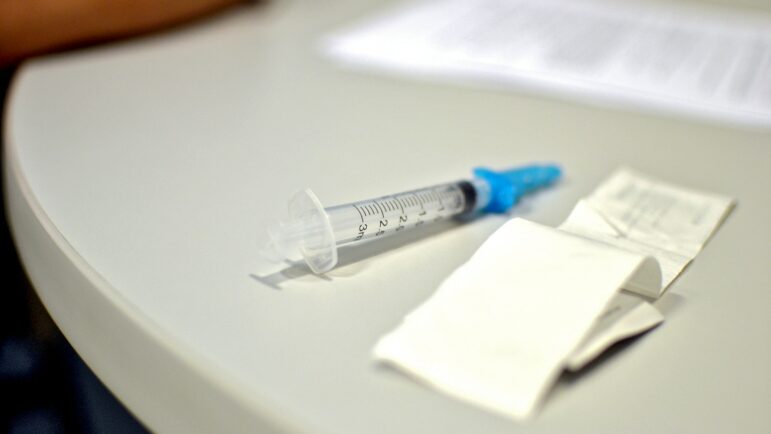
Frazier: The pandemic is still with us, what could this mean for policies going forward?
Chatlani: Well, it’s a weird time, for sure. We are right on the cusp of there being 1 million COVID-19-related deaths in this nation. The South was hit particularly hard, especially when it kind of started in New Orleans and spread out. Life is still going on and we are starting to see an uptick in cases in the North. That’s just as we had Jazz Fest in New Orleans.
So, it’s time to start thinking about how we make sure cases stay level. That might mean… masking, limiting big groups and — now with the increased attention on equity — it also means taking extra steps to vaccinate those populations that are still holding out, especially in those hard-to-reach communities.
Frazier: Shalina Chatlani is the regional healthcare reporter for the Gulf States Newsroom. Shalina thanks for being here.
Chatlani: Of course!
The Southern Poverty Law Center is a sponsor of WBHM, but our news and business departments operate independently.
This story was produced by the Gulf States Newsroom, a collaboration among Mississippi Public Broadcasting, WBHM in Alabama and WWNO and WRKF in Louisiana and NPR. Support for health equity coverage comes from the Commonwealth Fund.
Auburn fires coach Hugh Freeze following 12th loss in his last 15 SEC games
The 56-year-old Freeze failed to fix Auburn’s offensive issues in three years on the Plains, scoring 24 or fewer points in 17 of his 22 league games. He also ended up on the wrong end of too many close matchups, including twice this season thanks partly to questionable calls.
In a ‘disheartening’ era, the nation’s former top mining regulator speaks out
Joe Pizarchik, who led the federal Office of Surface Mining Reclamation and Enforcement from 2009 to 2017, says Alabama’s move in the wake of a fatal 2024 home explosion increases risks to residents living atop “gassy” coal mines.
‘It’s like feeling the arms of your creator just wrapped around you’: a visit to a special healing Shabbat
Members of Temple Emanu-El in Birmingham gathered recently for their traditional Friday Shabbat service. But this particular service was different, as could be seen by all the people dressed in their finest pink.
Space Command is coming to Huntsville. What might that mean for first-time homebuyers
While Huntsville has been a more affordable market than other growing cities, what’s it been like for those looking for their first home?
Colorado says relocation of Space Command to Alabama is ‘punishment’ for mail-in voting
The litigation announced by Colorado Attorney General Phil Weiser asks a federal judge to block the move as unconstitutional.
Breaking down Alabama’s CHOOSE Act
It’s been a year since Alabama legislators passed the CHOOSE Act allowing families to apply for state funds to use towards homeschool expenses and tuition for participating private schools. The Alabama Daily News’ education reporter Trisha Powell Crain has been diving into how the funds are being used. WBHM’s Andrew Gelderman sat down with her to talk about what we’re seeing so far.


